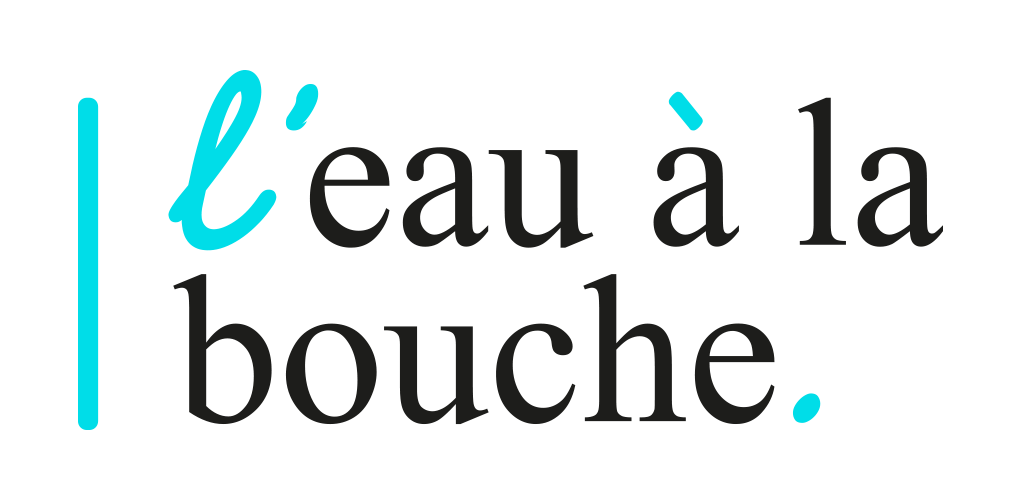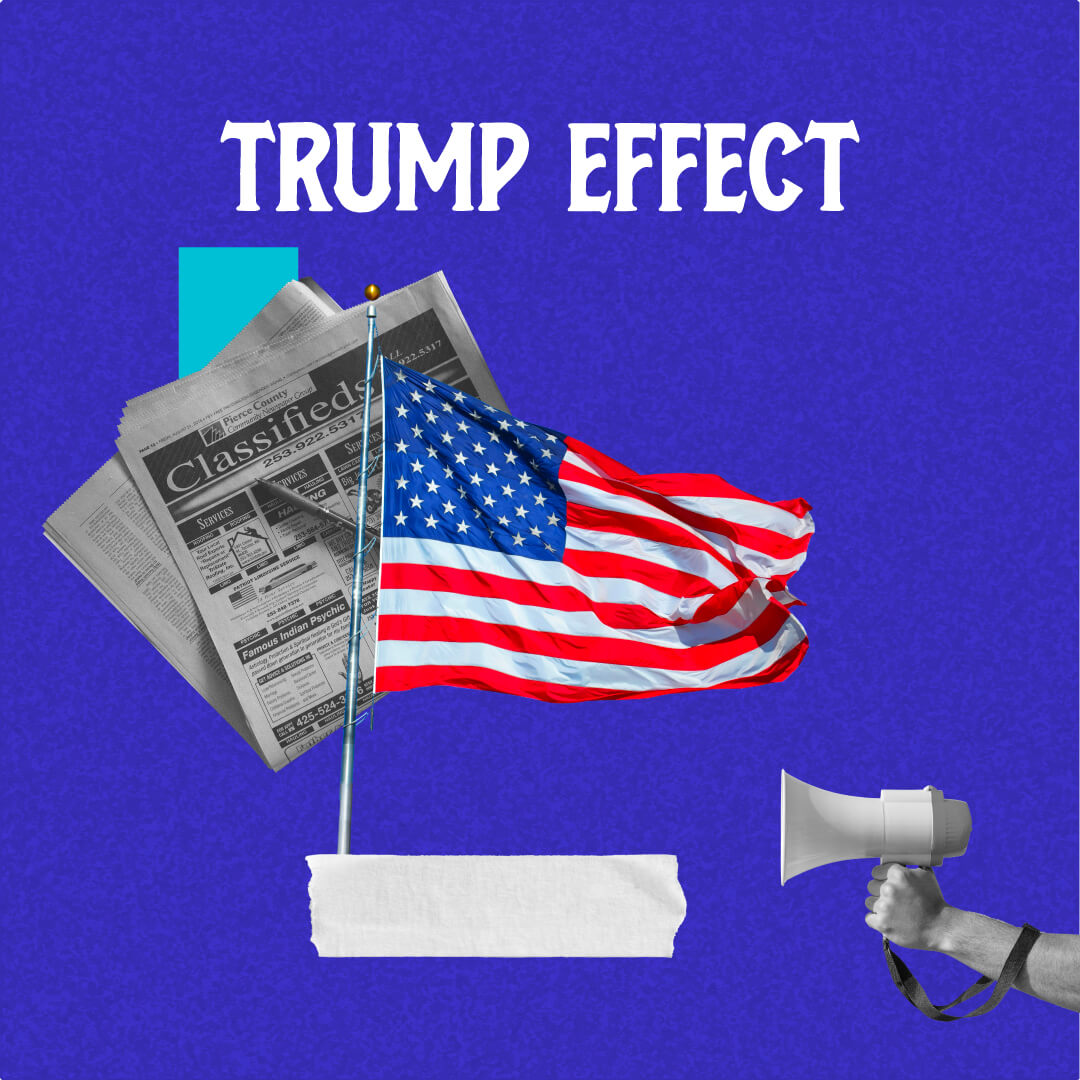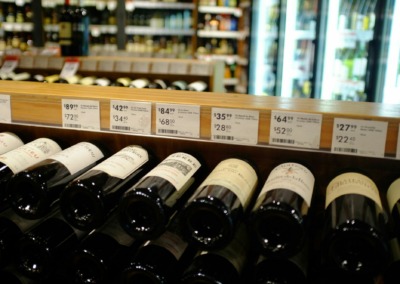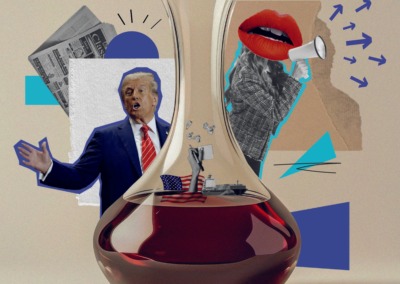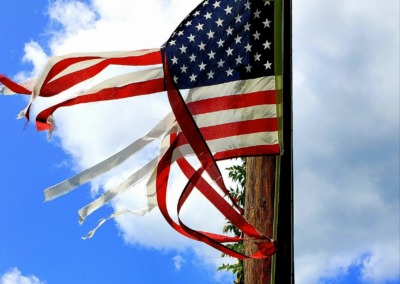Trump’s intentions on tariffs have been closely watched for months, leaving everyone doing business with the U.S. concerned, if not terrified. What a nice way to start 2025!
Donald Trump has been elected President of the United States and just returned to Washington on January 20. He announced tariff increases on imported goods and services from various countries. Naturally, the Wine & Spirits industry is alarmed, with European countries fearing a repeat of the catastrophic 2019 tariff hikes and their devastating impact on wine exports.
In late November 2024, Trump announced a 25% tariff on Mexican and Canadian products, citing immigration and drug trafficking concerns. He also imposed a 10% increase on Chinese imports, in addition to existing tariffs and any potential future increases. While his plans for other products and countries remain unclear, the question is less about whether tariffs will rise and more about how the Wine & Spirits industry can adapt to an unstable economic and political climate likely to include higher taxation.
Let’s take a moment to revisit history. In 2019, the Trump administration introduced 25% tariffs on European goods, targeting non-sparkling wines from France, Spain, Germany, and the UK after a WTO ruling against EU subsidies for Airbus. The impact was swift and severe: French wine exports to the U.S. plummeted by 17.5% in Q4 alone, leading to losses of approximately €40 million. By 2020, the scope of these tariffs widened, hitting even more European wines and spirits. The result? French exporters faced a staggering €600 million loss as U.S. exports fell by half.
In 2021, the Biden administration and the EU suspended these tariffs for five years, resolving the Airbus-Boeing dispute and improving trade relations.
In 2025, the U.S. remains one of the largest wine-consuming countries globally, with steady demand for imported wines. American consumers are increasingly adventurous, seeking options beyond domestic offerings -a trend unlikely to fade. As the product mix evolves, suppliers must prepare for changes in buyer preferences.
Ian Downey, Executive Vice President of Winebow Imports, notes that “few importers can absorb tariffs in the short term, leading to higher shelf prices and potentially reduced sales.” To navigate this uncertain political climate, he emphasizes the “importance of balancing anticipation and scenario planning with patience and deliberate action.”
Sean Kelly, Executive Vice President of ABC Fine Wine & Spirits, reflects this outlook: “ABC has adapted to economic changes by renegotiating supplier prices, adjusting order quantities, and focusing on value-priced core brands.” He adds, “We anticipate retailers will adjust import mix and volumes while striving to maintain low prices for consumers as long as possible.”
Tariffs as leverage in trade negotiations. Central to Trump’s “America First” agenda, tariffs are both a shield for U.S. industries and a bargaining tool in trade disputes with the EU. By imposing or threatening tariffs, the U.S. seeks to pressure European countries into concessions on subsidies, market access, and regulations that often favor European businesses over American ones.
The U.S. has long criticized Europe for restrictive markets affecting American products, like agricultural goods and tech services. Higher tariffs could push the EU to reduce trade barriers or cut tariffs on U.S. exports. One contentious issue is Europe’s Digital Services Tax (DST), which disproportionately impacts U.S. tech giants like Google and Facebook. While 2019’s tariffs targeted Airbus-related disputes, future tariffs may address these broader grievances.
President-elect Trump has appointed Jamieson Greer as U.S. Trade Representative, signaling a return to aggressive trade policies. Benjamin Aneff, President of the U.S. Wine Trade Alliance (USWTA), expects penalties to target specific European countries rather than bloc-wide measures.
What if we shifted perspective?
While it’s easy to focus on the hardship tariffs impose on exporting countries, their impact on the U.S. is often overlooked. The U.S. Wine Trade Alliance, representing all tiers of the industry, highlights how tariffs disproportionately harm small U.S. businesses. Importers, distributors, and family-run restaurants, reliant on European wine, face increased costs and reduced margins, threatening their survival.
Aneff argues, “New tariffs would harm American businesses more than those abroad.” He emphasizes that educating Congress about these impacts is vital, as the federal government doesn’t regulate the unique three-tier alcohol distribution system.
Olivier Picault, owner of California-based Planet Wine, notes that while tariffs are a challenge, his company has learned to adapt since 2019. Importing 95% of its products from France, Planet Wine began renegotiating supplier prices in late 2024 to keep prices competitive. They also inform clients, especially retailers, about tariff implications, preparing them for price changes.
Planet Wine is diversifying by partnering with U.S. winemakers and leveraging surplus inventory to reduce reliance on imports. However, Picault sees declining wine consumption as an even greater issue than tariffs. To address this, his company is expanding into emerging categories like low- and no-alcohol wines to meet changing consumer preferences.
With SipSource reporting a 5.2% decline in wine volumes and mounting tariff pressures, U.S. importers like Winebow Imports are turning to balanced strategies to mitigate losses. Their approach includes targeting competitive items from tariff-affected regions and focusing on higher-priced products that are less sensitive to price fluctuations. Ian Downey emphasizes the importance of “collaboration across all industry tiers to minimize negative impacts on consumers”, noting that avoiding prolonged "trading down" is essential for the health of the beverage alcohol industry, which has been facing challenges for years.”
Tariffs won’t stop the Wine & Spirits industry—time to rewrite the rules.
As strange as it seems, the more exporting countries complain about tariff impacts, the stronger Trump’s position becomes. His true focus likely lies in broader, more lucrative trade matters than wine imports.
The solution lies in reinvention, exploring new opportunities, and recognizing that trade discussions go beyond wine exports. The Wine & Spirits industry must adapt, diversify, and embrace creativity to navigate these challenges. Unified marketing, inventory management, and innovations like wellness-focused products are essential steps forward.
There’s hope, as Sean Kelly observes: “Consumer behavior is heavily influenced by trends like wellness, innovation, and emerging categories.” The key to survival lies in adaptability and collaboration.Haut du formulaire
Link to the article on the Voice magazine : Visit
